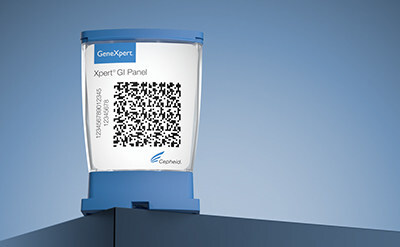Adding to its portfolio of approved therapies, Genentech received US Food and Drug Administration (FDA) approval for Tecentriq Hybreza (atezolizumab and hyaluronidase-tqjs), a new subcutaneous (SC) anti-PD-(L)1 cancer immunotherapy, offering a faster alternative to the intravenous (IV) Tecentriq. Administered in just seven minutes, this SC formulation is now available for all adult indications of IV Tecentriq, including certain types of lung, liver, skin and soft tissue cancers.
Tecentriq Hybreza combines atezolizumab and hyaluronidase-tqjs, enhancing treatment efficiency without compromising safety or efficacy.
Tecentriq Hybreza’s approval stems from the pivotal IMscin001 study, a Phase IB/III trial assessing pharmacokinetics, safety and efficacy. Conducted on 371 patients with advanced non-small cell lung cancer (NSCLC), the study showed that the SC and IV formulations delivered comparable therapeutic outcomes. Tecentriq Hybreza matched IV Tecentriq’s efficacy in terms of progression-free survival, overall response and overall survival.
The IMscin002 Phase II crossover study, which enrolled 179 participants, further validated the new SC formulation. It revealed that 71 percent of patients preferred Tecentriq Hybreza due to reduced clinic time, comfort and minimized emotional distress, with 79 percent opting to continue treatment with the SC option.
Major side effects of Tecentriq Hybreza include fatigue, decreased appetite and nausea, similar to those experienced with the IV version. Patients also reported cough, shortness of breath and muscle or bone pain.
Ongoing studies will continue exploring Tecentriq Hybreza’s effectiveness across different cancer types, with more research expected in the coming years.
XTALKS WEBINAR: How Decentralized and Rapid NGS Testing Can Overcome Challenges in Oncology Trials
Live and On-Demand: Friday, October 25, 2024, at 1pm EDT (10am PDT)
Register for this webinar today to understand how decentralized NGS testing reduced reliance on minimizes time required for sample transportation and processing.
A systematic review on SC and IV cancer therapies conducted among patients treated with drugs like rituximab (Rituxan) and trastuzumab (Herceptin), found that more than 68 percent of patients preferred the SC route due to shorter treatment times, less pain and reduced anxiety.
SC therapies like Tecentriq Hybreza could offer significant time savings and likely reduce preparation costs, making them a more efficient option for both patients and healthcare systems.
Tecentriq belongs to a class of drugs known as immune checkpoint inhibitors, which block proteins like PD-L1 that allow cancer cells to evade immune detection. By targeting PD-L1, Tecentriq reactivates T cells to identify and attack cancer cells.
Tecentriq is part of a class of PD-L1 inhibitors, which includes other popular therapies like durvalumab (Imfinzi) and pembrolizumab (Keytruda). Keytruda has been approved for at least 18 different cancers, and in a recent clinical trial for high-risk, muscle-invasive bladder cancer, improved the time patients remained cancer-free.
Following Tecentriq Hybreza, Genentech also received FDA approval for Ocrevus Zunovo (ocrelizumab & hyaluronidase-ocsq), the first and only twice-a-year SC injection for relapsing and progressive multiple sclerosis. All in all, Genentech’s commitment to advancing more convenient and accessible therapies across multiple disease areas is evident.












Join or login to leave a comment
JOIN LOGIN